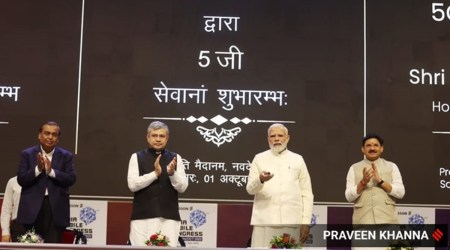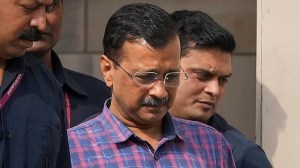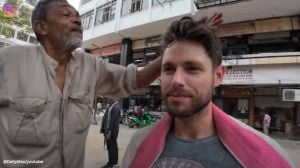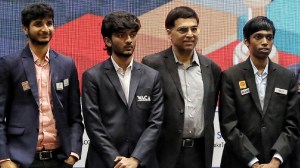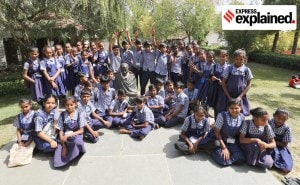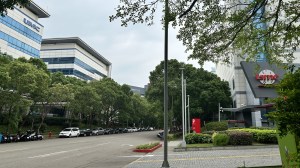- India
- International
Days before breach, APG report flagged Facebook use in money laundering, terror funding
Use of Facebook for money laundering and organised crime was found to be prevalent in neighbouring Bangladesh where a Facebook page was opened in the name of a senior government official.
 The Facebook statement said, “We cooperate with law enforcement agencies around the world, including in India, and we’re always improving the methods we use to identify content that violates our policies.”
The Facebook statement said, “We cooperate with law enforcement agencies around the world, including in India, and we’re always improving the methods we use to identify content that violates our policies.”
The recent security breach that affected 50 million Facebook accounts came days after a report by Asia Pacific Group (APG) flagged the use of the social networking website in activities linked to money laundering and terrorist financing.
APG is an inter-governmental authority set up in 1997. At present, it has 41 members out of which 11 are also members of the Financial Action Task Force (FATF), including Australia, India, China, Hong Kong and Japan, among others.
READ | Facebook security breach: Here’s what happened, how it happened and what users should do
In the report, “2018 Methods and Trends in Money Laundering and Terrorist Financing”, APG, co-chaired by India and New Zealand, has recorded case studies across Asia to identify money laundering and terrorist financing “typologies”. The report cites a case from Malaysia where “two individuals were soliciting funds for the purpose of financing foreign terrorist fighters (FTF) who were travelling to Syria. The funds were solicited by using a blog and a Facebook account of the accused”.
Use of Facebook for money laundering and organised crime was found to be prevalent in neighbouring Bangladesh where a Facebook page was opened in the name of a senior government official.

“On that FB page, some posts were published regarding extending financial aid by the government to unemployed people. To make the page trustworthy, some slogans like ‘Leave terrorism and come to a normal life: Government extends financial aid to the unemployed destitute people’ were used.
The page also used some pictures of cheque handing-over ceremonies by the government official. Mentioning a phone number and e-mail address, the page instructed the interested persons to contact them for financial aid. The suspects were traced when an investigation was launched by Bangladesh Financial Intelligence Unit,” the 74-page report stated.
In an e-mail, a Facebook spokesperson in Delhi clarified, “Our Community Standards make it clear that we do not allow terrorist or criminal individuals or organizations to maintain a presence on Facebook. We remove these individuals and groups — and any content praising or supporting them — as soon as we become aware of them.”
The statement added, “We cooperate with law enforcement agencies around the world, including in India, and we’re always improving the methods we use to identify content that violates our policies.”
New Zealand, one of the member countries at APG, reported a case of a Vietnamese Facebook community page that “sought out unsuspecting participants to facilitate” money laundering on “behalf of a transnational crime network responsible for a substantial cocaine importation,” the report states.
New Zealand police said they were investigating import of a large amount of cocaine and an arrested suspect told them she had “posted on the wall of a local Vietnamese Facebook page, saying that she wanted to get money from Vietnam into New Zealand without the Western Union or bank fees”.
“A male responded and organised for her to meet with his mother who wanted to get money back to Vietnam. When the two females met at the bank, the smurf’s mother was at a bank in Vietnam depositing the equivalent of New Zealand dollars 100 K into a Vietnamese bank account. She told police this was a completely normal practice in Vietnam,” the report stated.
More Tech
Best of Express

Apr 23: Latest News
- 01
- 02
- 03
- 04
- 05





















